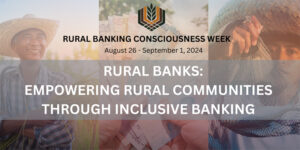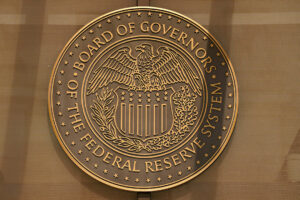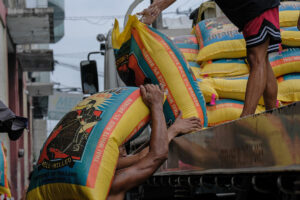By KATHERINE L. MAGSANOC
MANILA, Philippines — In the age of AI, it may be hard to understand that there are still many Filipinos who do not know how to go to a bank, open a bank account, maintain it, and make it grow. This is true when it comes to Filipinos living in the rural areas, who comprise 51.71% of our total population, according to a World Bank report that came out this year.
This accounts for a whopping 5.9 million Filipinos — almost six million people who need help with financial literacy and banking, especially if they want to start their own business.
The Rural Bankers Association of the Philippines (RBAP) understands this, which is why their theme for their Rural Banking Consciousness Week celebration this August 26 to September 1 is themed, “Rural Banks: Empowering Rural Communities through Inclusive Banking.”
Rural banks and community building
“Rural banks play an important role in countryside development,” begins RBAP Executive Director Rafael Francisco Amparo in an interview with The STAR. Rural banks are present mostly in the lower income municipalities of the country (rural banks account for almost 70% of banking offices located in the third to fifth class municipalities), they serve as the countryside’s first — and oftentimes — only access point to financial services.
“By providing a regulated vehicle for channeling community savings to fund local micro and small entrepreneurs, rural banks are the primary catalysts for local economic development,” Amparo continues.
RBAP addresses the evolving needs of consumers and applies the principles of inclusive banking in their communities by constantly engaging with regulators (BSP, CIC, SEC, etc.) and enablers (technology providers, multilateral development organizations, NGOs, interest groups). They do this to stay abreast of the rapidly changing regulatory and business environments.
“The typical rural bank is often the only banking presence in its community,” says Amparo. “By its very nature, rural banking is an exercise in financial inclusion.”
Full support of MSMEs
RBAP’S member banks continue to be a key source of credit for MSMEs. In an article last January 2024, Businessworld noted that the sector showed the highest level of compliance with lending to MSMEs:
“Meanwhile, rural and cooperative banks extended loans worth P32.346 billion to micro and small enterprises. This is equivalent to 16.39% of their P197.401-billion credit book, and well above the minimum amount required by law. Their loans to medium enterprises hit P18.3 billion or 9.27% of their loan portfolio.”
According to Amparo, this is in sharp contrast to the 1.44% and 3.81% of total loan portfolios lent respectively by Universal/Commercial Banks (U/KBs) and Thrift Banks (TBs) to MSMEs.
Strategic partnerships for the greater good
RBAP Board of Directors
“RBAP — being an association of rural and cooperative banks — is open to all entities, individuals, and organizations that share its vision of enabling rural and cooperative banks to play a key role in the local economies,” says Amparo.
They have an existing partnership with the Economic and Financial Learning Office of the Bangko Sentral ng Pilipinas (BSP) to conduct capacity-building exercises for rural bank front line staff this November, with the objective of making every rural bank frontliner a competent financial inclusion and education advocate and evangelist.
They also have a partnership with Water.Org with whom they share a vision of enabling access to finance for clean water, sanitation, and hygiene for the disadvantaged sectors of society.
Digitalization and other trends to prepare for
According to Amparo, their member banks are aware that digitalization will continue to be the general trend in the near future. Some of them already offer electronic payment and financial services (EPFS) authorities from BSP.
“Specialized developments such as the use of generative AI and large language models, to automate processes while reducing human error and improving the quality of output, will play key roles in banks of the future,” he says.
Another trend that is cause for concern within the industry is the continuing evolution of fintechs targeting markets traditionally underserved by banks, and providing financial services at the literal tap of a finger on a touch screen.
“How banks will evolve their own user and customer experiences to match those of fintechs, may very well determine the continuing relevance of banks in the financial space in the future,” Amparo posits.
Digital channels could work to the advantage of RBAP members when they are utilized for financial education. “We foresee rapid progress in the war against financial ignorance,” says Amparo.
“The task to educate all Filipinos in the relevance of finance to their daily lives becomes an achievable reality.”
Spotlight is BusinessWorld’s sponsored section that allows advertisers to amplify their brand and connect with BusinessWorld’s audience by publishing their stories on the BusinessWorld Web site. For more information, send an email to online@bworldonline.com.
Join us on Viber at https://bit.ly/3hv6bLA to get more updates and subscribe to BusinessWorld’s titles and get exclusive content through www.bworld-x.com.






